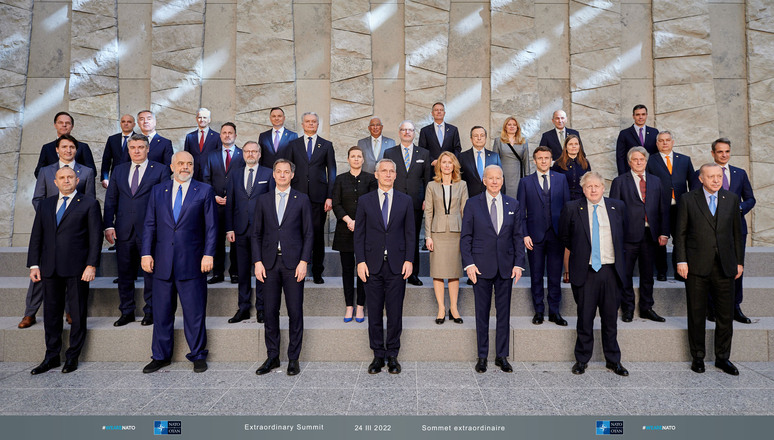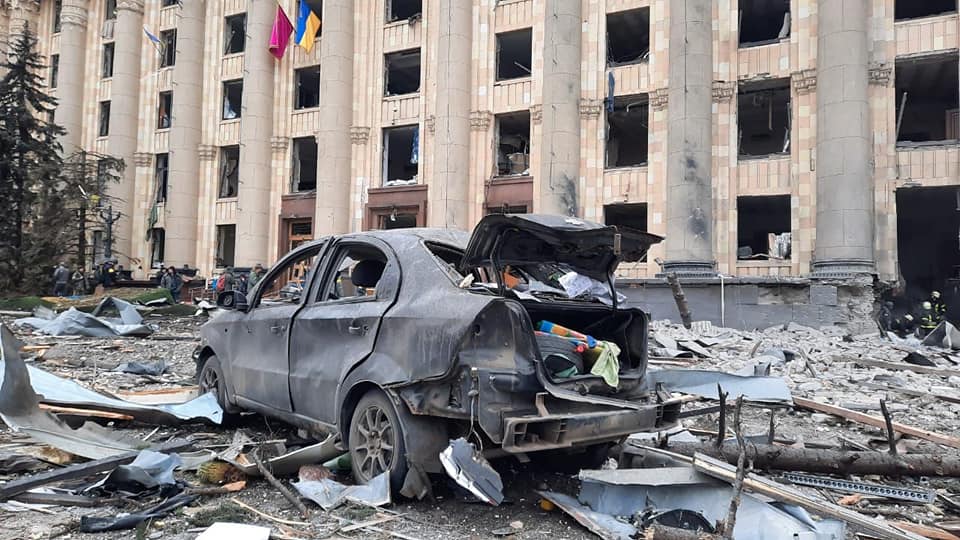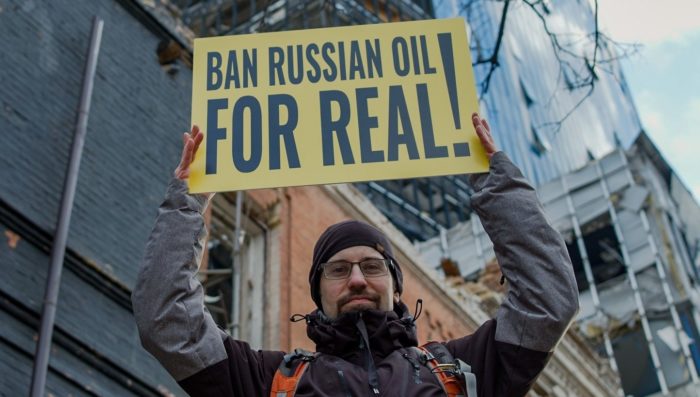“The war simply started as Putin’s fundamental willingness and commitment to destroy Ukraine”
Pavlo Klimkin was the Minister for Foreign Affairs of Ukraine from 2014 to 2019. He was a speaker at the fourth Ukrainian Dialogue that Aspen Institute Kyiv held with Aspen Institute New Zealand.
Mr. Klimkin said that the main reason for the Russian aggression against Ukraine was not about NATO but the Russian imperial view on the country:
"The war simply started as a fundamental willingness and commitment from Putin to destroy Ukraine, its statehood and anything considered Ukrainian – including the history and language. People around Putin see Ukraine as a part of Russia but somehow infected with a Western virus. Our success and being close neighbors pose fundamental problems for the Russian regime."
Pavlo underlined that modern Russia has more similarities with fascist regimes than modern countries, even those who are not considered to have democratic governments. He noticed that this country still lives with the illusions of their imperial past and dreams about returning to the days of the Soviet Union.
“Russia started aggression only when the prices on oil and gas were at their peak”
Lana Zerkal was a Deputy Minister of Foreign Affairs of Ukraine for European Integration (2014-2019). She is convinced that Russia started the aggression in Ukraine because of assurances that the West will never ban their energy resources:
“Russia and Putin as well still think that they have unlimited indulgence because the West is afraid to introduce any kind of embargo on energy products. At the same time, Russia continues its aggression that is based on the revenue they have from oil and gas. Remember 2008. Remember 2014. If you turn back to the history of invasions, you will see that they started aggressions only when the prices on oil and gas were at their peak. And we see that only this year Russia may earn ⅓ more in the budget revenues from gas and oil. It means that they can earn approximately 100 billion dollars for their budget due to the depreciation of the ruble and the rise of prices in dollars for oil and gas as well as additional revenues.”
“Ukrainians want to be able to rebuild Ukraine as a country for people using the best solutions”
Natalie Jaresko is the Aspen Institute Kyiv Chairperson and a former Minister of Finance of Ukraine (2014 — 2016). Ms. Jaresko was the speaker of several Ukrainian Dialogue events, among them — the panel discussion with Aspen Institute Germany.
Ms. Jaresko mentioned that at the moment it is not possible to estimate the actual amount of damage inflicted on Ukraine. Natalie is sure that no-one in Ukraine will want to rebuild a version of Soviet Ukraine. Ukrainians want to be able to rebuild their country as a green and energy efficient economy. They also wish to reconstruct it as a country for people using the best technologies, architecture and a vision of community that exists in the world.
“The cost of the damage is one estimate whereas the cost of renewing is quite different. The plan, the vision of what to rebuild needs to be owned by the people of Ukraine and the Ukrainian government but there is no way the Western world is going to support this plan without confidence in transparency and anti-corruption. As much as we think about the vision, which needs to be owned by Ukraine, there has to be coordination with the international community that is going to provide the money. “
“As a global community, can we feel safe living next to such a huge country with 140 million inhabitants who have a mindset of aggression?”
Lesya Vasylenko is a member of the Ukrainian Parliament. She was the speaker at the ninth Ukrainian Dialogue that Aspen Institute Kyiv held with Aspen Institute UK.
Ms. Vasylenko stressed that Russia’s policy towards Ukraine was always about Ukraine having no right to exist as a nation. This follows from their ideological doctrine “The Russian World.” The aforementioned doctrine is espoused by whoever comes to power in Russia and has been nourished for generations amongst Russians.
Lesya added that the global community cannot continue to live with an illusion of a romanticized Russia, a kind of controlled Wild West where you can go, have a different kind of experience and still come back. That is not what Russia is about. Russian narratives are those of empire, colonial powers, aggression, and suppression.
“As a global community, can we feel safe living next to such a huge country with 140 million inhabitants who have a mindset of aggression, affronting the sovereignty of another country just because they can? I think the answer is obvious. We need to think about solutions.”
These dialogues are part of the Ukrainian Dialogue project launched by the Aspen Institute Kyiv and its International Partners (other Aspen Institutes of the world). Its main objective is to create a platform for dialogue between Ukrainian leaders and support countries representatives about how to help Ukraine win this war.
Aspen Institute Kyiv has held these discussions with other Aspen Institutes from 11 countries. You can listen to them on YouTube
, via Apple Podcasts, via Google Podcasts, via Spotify.
Aspen Institute Kyiv is an independent nonpartisan organization that supports values-based leadership, promotes a culture of dialogue and creates opportunities for the exchange of ideas.
Related:
- Why Russia is invading Ukraine
- Russian World: the heresy driving Putin's war
- Russian ideology: imperialism, militarism, and racism
- How Russia justifies the murder of Ukrainians: Russia’s 2022 “genocide handbook” deconstructed
- Russia’s call for genocide of Ukrainians outstrips Mein Kampf
- The scope of the EU energy dependence on Moscow and practical ways out
- How to make sanctions really painful for Russia, immediately




